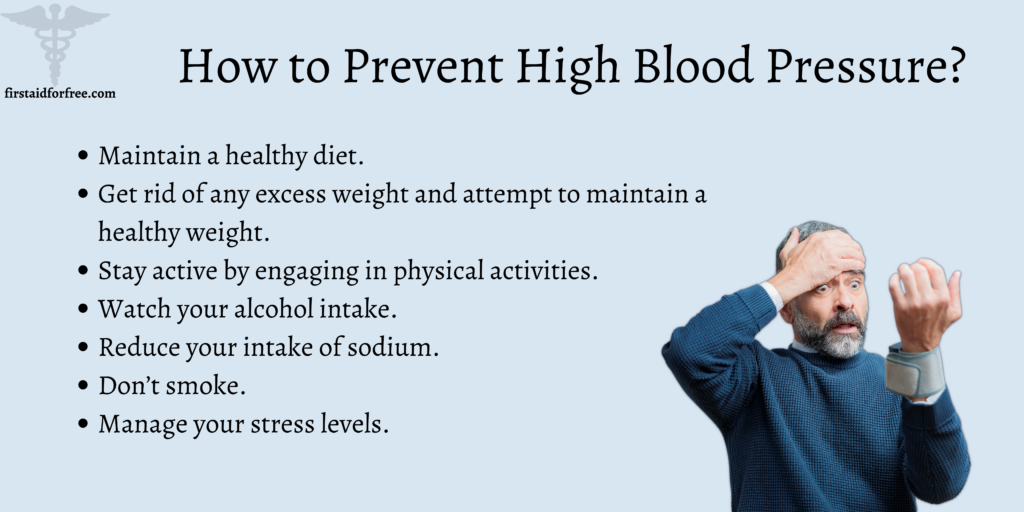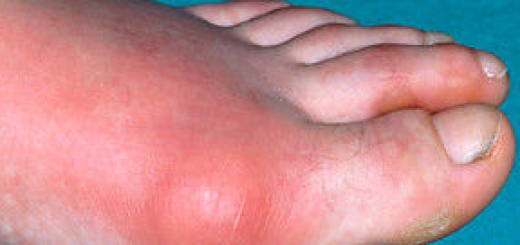First Aid for High Blood Pressure: 7 Effective Steps to Take
As per the Centers for Disease Control and Prevention, hypertension was a contributing or primary cause of 691,095 deaths in 2021 in the United States. Given the fact that statistically it claims so many lives, I believe that knowing about the condition helps us save ourselves and our loved ones in the long run.
High blood pressure, which is also known as hypertension, occurs when the force of blood pushing against a person’s artery walls is consistently too high. Due to this, the person’s heart has to work harder to pump blood.
The arteries get damaged with time, which could lead to serious medical conditions such as a stroke or heart attack. Being aware of the symptoms related to high blood pressure enables you to get it checked early on.
Have you always wondered what the first aid for high blood pressure entails? If yes, then we will be discussing it in this article, along with the causes of high blood pressure, how to prevent it, and the risk factors involved.
What are the Causes of High Blood Pressure?
There are two types of hypertension, namely essential or primary hypertension and secondary hypertension, and they both have different causes.
Primary Hypertension
When the cause of high blood pressure is not identifiable, it’s known as primary or essential hypertension. This is the type of hypertension which develops with time, and it’s also the most common type of high blood pressure.
The causes of primary hypertension are:
- Lack of physical activity
- Having unhealthy eating patterns, including high intake of sodium
- High alcohol consumption
Secondary Hypertension
Secondary hypertension takes place due to an underlying condition. It often appears suddenly and could become more serious than primary hypertension. Some of the causes of secondary hypertension include:
- Obstructive sleep apnea
- Use of illegal drugs
- Adrenal gland problems
- Side effects of certain medications
- Kidney disease
- Congenital heart defects
- Chronic consumption of alcohol
- Issues with thyroid
- Certain endocrine tumors
Symptoms of High Blood Pressure
The symptoms of high blood pressure aren’t always too evident, even when the readings go too high. A person can have high blood pressure for a very long time without ever displaying any symptoms.
Some of the symptoms which could show themselves in certain individuals with high blood pressure are:
- Nosebleed
- Shortness of breath
- Headache
The symptoms, however, don’t always show up until a person’s high blood pressure becomes life-threatening or too severe.
How to Treat High Blood Pressure?
The way to treat high blood pressure involves medications as well as lifestyle changes. The treatment suggested by your doctor depends on what caused your high blood pressure, what the underlying conditions are, and what the blood pressure readings are.
The lifestyle changes to follow to naturally lower your high blood pressure are:
- Follow a healthy diet plan and maintain a healthy weight.
- Reduce your intake of sodium.
- Manage your stress levels and regularly monitor your blood pressure.
- Limit your consumption of refined sugar.
- Add more vegetables and fruits to your diet.
Someone with high blood pressure could be recommended a couple of medications by their healthcare provider till they find one medication or a combination of them that works well.
The medications that are often used to treat high blood pressure include:
- ACE inhibitors
- Beta-blockers
- Alpha-2 agonists
- Diuretics
- Calcium channel blockers
- Angiotensin II receptor blockers (ARBs)
How to Prevent High Blood Pressure?
There are a couple of things one can do to reduce the risk of developing high blood pressure. They are as follows:
- Maintain a healthy diet.
- Get rid of any excess weight and attempt to maintain a healthy weight.
- Stay active by engaging in physical activities.
- Watch your alcohol intake.
- Reduce your intake of sodium.
- Don’t smoke.
- Manage your stress levels.
Risk Factors
Several risk factors are involved in association with high blood pressure, such as:
- As one ages, the risk of high blood pressure increases as well.
- Having a family history of high blood pressure.
- Lack of exercise or physical activity.
- Consuming too much salt.
- High levels of stress
- Low levels of potassium.
- Drinking too much alcohol.
- Certain chronic conditions, including diabetes and kidney disease.
FAQs
How can I lower my blood pressure quickly?
Some of the ways to lower your blood pressure include taking a warm bath, reducing your stress levels, and focusing on deep breathing or meditating.
What is a normal blood pressure level for an adult?
Normal blood pressure level for an adult is between 90/60mmHg and 120/80mmHg.
Can drinking water lower blood pressure?
Drinking water does help in normalizing a person’s blood pressure.
What foods help in lowering blood pressure?
The foods that help in lowering blood pressure include citrus fruits, salmon and other fatty fish, nuts and seeds, leafy greens, legumes, mushrooms, tomatoes, and beans.
Does walking lower blood pressure?
Any form of daily physical activity, such as walking, can aid in keeping one’s blood pressure in check.
Which fruit is best for high blood pressure?
The fruits that help in lowering high blood pressure are citrus fruits, tomato, avocado, pomegranate, watermelon, mango, kiwi, apricot, apple, banana, and honeydew melon.
Is coconut water good for high blood pressure?
Yes, coconut water can help in lowering one’s blood pressure.
How can I control my blood pressure?
You can control your blood pressure by exercising regularly, following a healthy diet, reducing your stress levels, reducing salt intake, and maintaining a healthy weight.
Conclusion
Anyone with high blood pressure needs to go for yearly checkups so that their healthcare provider can monitor their blood pressure and recommend any treatment, if necessary.
Contact the emergency medical services if you witness any of the following symptoms: Headache, Dizziness, Vomiting, Shortness of breath, Blurry vision, Chest pain, Anxiety, and Heart palpitations.
Although high blood pressure is a serious condition, it’s also a silent one that tends to get worse with time without people even realizing about it. Therefore, scheduling regular checkups can help you keep your high blood pressure in check and keep track of your readings.






